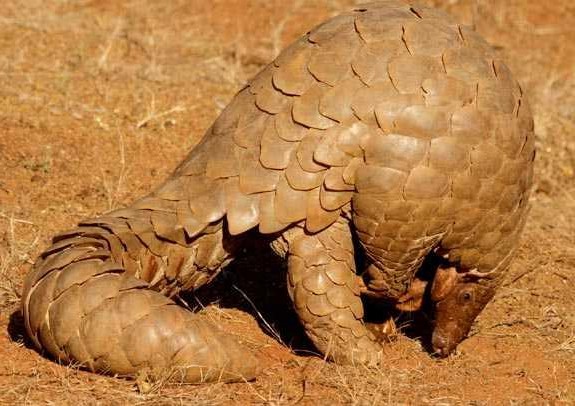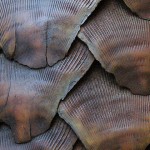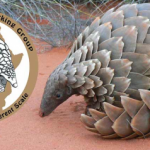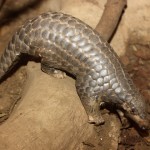Authorities apprehended two suspects and seized five kilograms of pangolin scales in Manipur’s Thamnapokpi earlier this week.
KanglaOnline reports that police raided a local market and found 20 year-old ThangsualianZou and 23 year-old ThangminlianZou (alias HiminZou) with around five kilograms of pangolins scales and no permit to possess them.
Pangolin scales are in high demand in the black market traditional Chinese medicine trade in East and Southeast Asia (mainly in China and Vietnam), despite the fact that there is no scientific evidence to support any medicinal claims made about pangolins, their scales, nor their body parts.
The suspects and contraband were reportedly handed over to forest officials for further action.
India has made at least two pangolin scale busts so far this year.
- July: Police seized nearly 20 kilos of pangolin scales and arrested two suspects.
- May: 12 kg of scales were reported seized and two suspects were apprehended.
It may be worth noting that Indian media reported in 2011 that 46 kg of pangolin scales that had been seized a year prior (while en route to China) had mysteriously gone missing from the warehouse where they were being stored.
Thousands of pangolins plundered so far this year
It’s believed as many as 10,000-13,000 pangolins have been captured and smuggled out of the wild in just the first seven month so this year.
In East and Southeast Asian consumer countries — chiefly Vietnam and China — scaly anteaters’ flesh is consumed as a delicacy (and for perceived health benefits, such as kidney nourishment), while their scales (and blood and other body parts) are used to create traditional Chinese medicine concoctions.
These “cure-all remedies” are superstitiously used to treat a variety of ailments, including reducing swelling, improving liver function, promoting weight loss, stimulating blood circulation, enhancing lactation in lactation in breast-feeding women.
Profiteers have even fallaciously been claimed these potions can cure cancer.
The animals’ scales are primarily composed of keratin, the same protein that comprises rhino horns and our own nails — and in fact, peer-reviewed laboratory studies have proven rhino horn to be void of any curative, medicinal properties.
It appears that China’s extremely controversial ‘medicinal-use pangolin farms‘ have been stimulating the demand for these illegal products in much the same way that tiger and bear bile farms have encouraged illegal plundering of those imperiled creatures around the world.
Author: Sarah Pappin. Read more about Sarah here.
Image by Sandip Kumar via Wikimedia Commons
Want to help? Check out our pangolin t-shirts: Project Pangolin is contributing $2.00 per t-shirt or hoodie to Education for Nature-Vietnam.







Comments are closed.